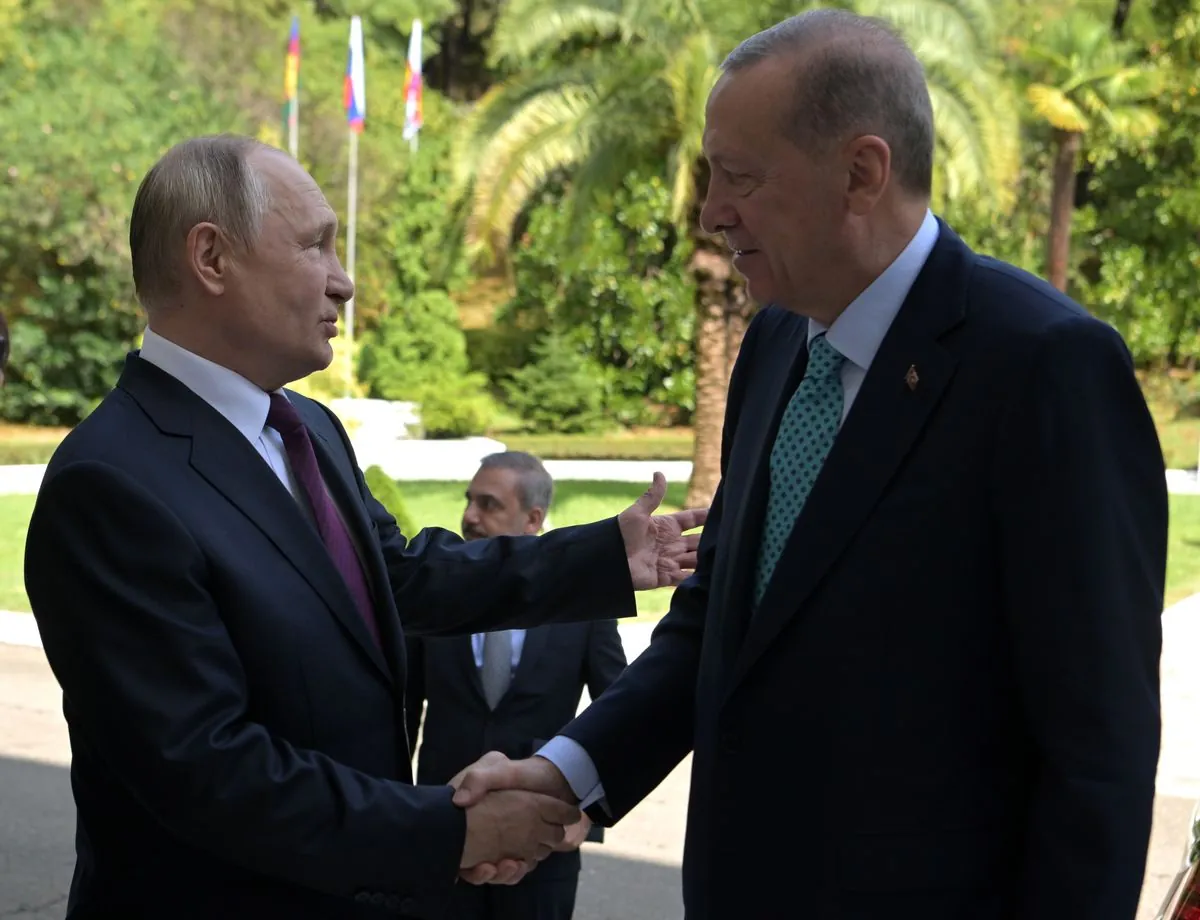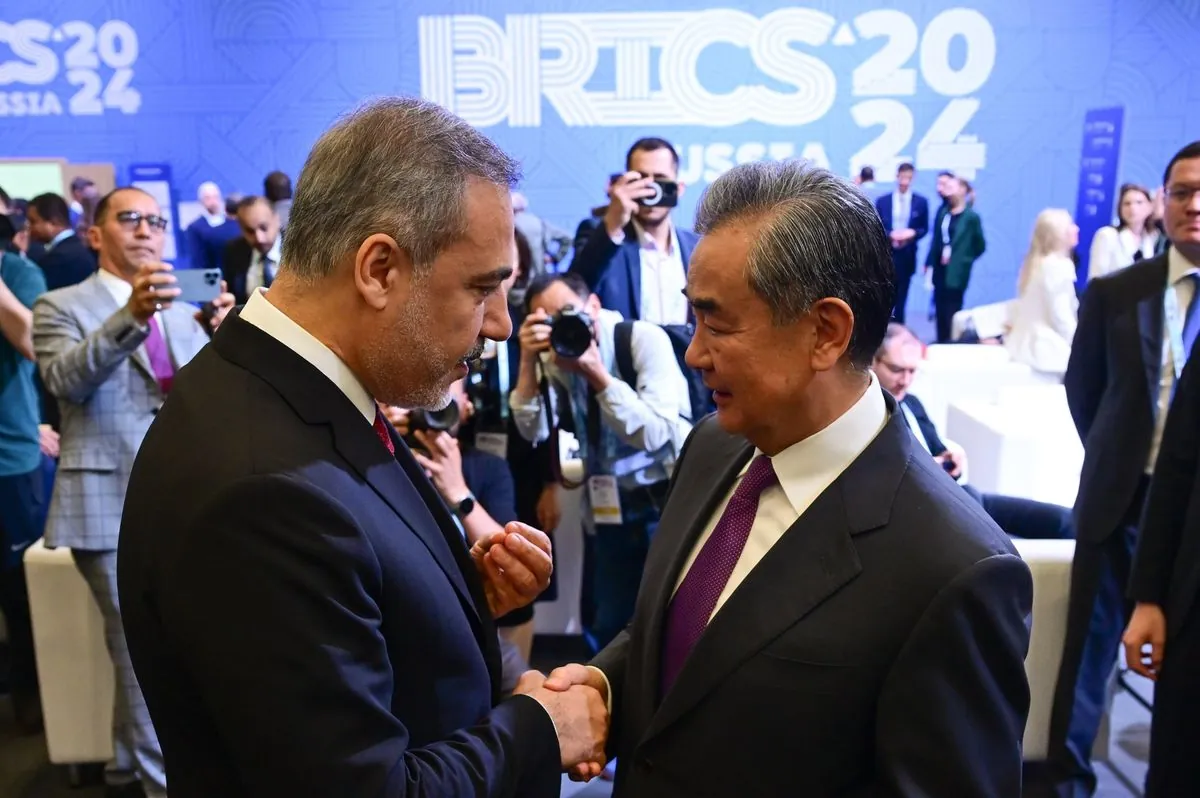Turkey's BRICS Ambitions: A Delicate Diplomatic Dance
Turkey expresses interest in joining BRICS, but takes no concrete steps. The move raises concerns among Western allies about Ankara's geopolitical orientation, as it balances between NATO commitments and expanding partnerships.

Turkey's potential membership in the BRICS group of emerging economies remains a topic of interest, despite no concrete steps being taken towards this goal. The ruling AK Party spokesperson, Omer Celik, stated on September 2, 2024, that while the process is ongoing, there are no significant developments to report.
The BRICS alliance, originally formed in 2006, has expanded to include Brazil, Russia, India, China, South Africa, Ethiopia, Iran, Egypt, and the United Arab Emirates. This group represents approximately 40% of the world's population and 25% of global GDP, wielding considerable influence on regional and global affairs.
Turkey's interest in BRICS membership highlights its pursuit of strategic autonomy and diversification of international partnerships. As the 20th largest economy by nominal GDP, Turkey's potential inclusion in BRICS could significantly impact its relations with Western allies.

During a visit to China in June 2024, Turkish Foreign Minister Hakan Fidan expressed interest in joining BRICS, stating, "We would like to, of course, why would we not?" However, this statement was later tempered by Finance Minister Mehmet Simsek, who emphasized that Turkey does not intend to decouple from its "core" Western partners.
Turkey's diplomatic balancing act is evident in its simultaneous NATO membership since 1952 and ongoing EU accession negotiations that began in 2005. The country's improved relations with Russia since the mid-2010s, particularly in energy, tourism, and defense sectors, have raised concerns among U.S. and European partners about a potential geopolitical pivot.
"Turkey remains committed to its responsibilities as a NATO ally."
This statement underscores the complex nature of Turkey's international positioning. As a transcontinental country straddling Europe and Asia, Turkey's potential BRICS membership could have far-reaching implications for its diplomatic relations and economic partnerships.
The BRICS group, with its own development bank and focus on promoting peace, security, development, and cooperation, offers an alternative platform for emerging economies. Turkey's interest in joining this alliance reflects its ambition to play a more significant role in shaping global economic and political dynamics.
As the situation develops, all eyes will be on Turkey's next moves in this delicate diplomatic dance between its traditional Western allies and the expanding BRICS coalition.


































